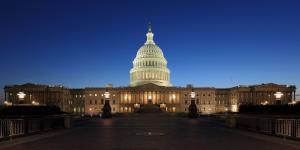 With this final Sunday before Advent, now called Reign of Christ Sunday, the Hebrew Bible once again falls under the aegis of the story of the New Testament. I admit to feeling somewhat sad on this Sunday, since I know that henceforth whatever text from the Hebrew Bible the lectionary collectors choose will only be offered in service to the story of Jesus and his birth, ministry, and death from now until Easter. I am a Christian, and so I know that the story about to unfold again is the story that makes me who I am as a believer. Still, I cannot fail to regret that the Hebrew Bible that I love will once again be subsumed and treated as a prefiguring of the coming of Jesus. As a result, the unique voice of the First Testament will be stilled, or at best reduced to a whisper in the blinding light of Jesus’s life and ministry.
With this final Sunday before Advent, now called Reign of Christ Sunday, the Hebrew Bible once again falls under the aegis of the story of the New Testament. I admit to feeling somewhat sad on this Sunday, since I know that henceforth whatever text from the Hebrew Bible the lectionary collectors choose will only be offered in service to the story of Jesus and his birth, ministry, and death from now until Easter. I am a Christian, and so I know that the story about to unfold again is the story that makes me who I am as a believer. Still, I cannot fail to regret that the Hebrew Bible that I love will once again be subsumed and treated as a prefiguring of the coming of Jesus. As a result, the unique voice of the First Testament will be stilled, or at best reduced to a whisper in the blinding light of Jesus’s life and ministry.
I have spent nearly my entire scholarly life trying to convince Christian followers that the Hebrew Bible is intrinsically crucial for our faith. It is not only to be viewed as a “forerunner” or a “predictor” or a “prefiguring” of the main event of Jesus. Of course, Jesus is the main feature of our faith, but if we are to understand that faith in full, we must read with care the material that Jesus, as a Jew, was raised to love and accept as foundational. He came to “fulfill Torah,” as he was remembered to have said, not to create a new religion, not to supercede the religion in which he was born. In one of his striking parables, he made it quite clear that, if one did not read and accept Moses and the prophets, neither would one accept Torah “even if someone were to rise from the dead” (Luke 16:19-31). In other words, all that one needs to know for full understanding of what Jesus had in mind for his followers is to read Moses and the prophets; i.e. the Hebrew Bible.
On this Reign of Christ Sunday, we find a parade example of how Hebrew Bible texts may be turned into a prefiguring of Jesus’ coming reign, and thereby twist the original meaning of the text itself into something it never intended. In fact, in this particular case the text itself appears to be in the long story of King David a kind of ironic piece of propaganda, claiming ideas for the rule of David that are both false and ludicrous. Read in its original context 2 Sam. 23 becomes a sort of dark commentary on what someone hoped David’s kingship might have been, but in the glaring light of what the rest of 1 and 2 Samuel tells us can only be seen as wishful thinking, a sort of “if only” dream for a David that never was. Read in that fashion, this text may be viewed as a hoped for outline of what the rule of Jesus might become, at least in part.
To begin, these are plainly not the “last words of David,” as the author of these glowing words claim (2 Sam. 23:1). According to the quite painful tale found in 1 Kings 1-2, the last words of David were in reality a murder contract on an aging and helpless enemy. Earlier in the long story, Shemei, a long time retainer in the house of Saul, cursed the king as he fled from Jerusalem, having been driven out of his city by his rebellious son, Absalom. As those curses were being hurled at him, David said clearly that he would not himself attack the loud-mouthed Shemei. And so the old man was allowed to live that day, but when David regained his power, and consolidated his full authority over Israel, and as he himself aged, he still never forgot old Shemei’s curse. And so, in words befitting a Mafioso don, David bids his successor, his son Solomon, to “not allow his gray head to go down to Sheol in peace,” a more polite and circuitous way of saying, “Kill him now!” And those, we are told, are the last words of David. Then, what are we to make of 2 Sam.23?
As the fame and notoriety of David grew over the years, as an increasingly weakened and notorious gaggle of kings came to rule over Israel, the memory of the mighty David was enlarged into one of unlimited glory and undimmed faith in the power of YHWH, the God who chose him to be king. Hence, now he is not only king, he is an “oracle,” a divine prophet, a warrior whom YHWH raised on high, “Messiah of the God of Jacob, the favorite of the Mighty One of Israel” (2 Sam.23:1). It is no surprise that early Christian commentators read this text through the lens of their experience with Jesus, seeing in him these very attributes, oracle, prophet, warrior, Messiah, favored one. In both the case of the author of these words, and in the case of those who read them anew in the light of Jesus, the words become a hoped-for reality. Surely, many knew that David was nothing of the sort, but rather a murdering, lying, adulterous human being who fell far short of YHWH’s desires for kingship over the chosen people. And as for those who applied the grand words to Jesus of Nazareth, they too hoped that he would be just what the words implied. But one can imagine that many wondered, as Rome murdered this Jesus and continued to oppress the land for hundreds of years after Jesus’ very brief life.
The author of the poem ascribed to David attributes he never fully had, but dearly wished he had. He wished he had been “one who rules over humanity with righteousness, ruling in the fear of God, like the light of morning, like the sun on a cloudless morning, glistening with rain on a grassy land” (2 Sam.23:3-4). These delightful poetic images shine with hope for the time when justice and righteousness will be the hallmarks of rulers for the future, however little they have demonstrated such characteristics to date.
I write this on election-day in America, where millions are voting, adding to some 30,000,000 early voters in an unprecedented outpouring of energy, remarkable for a mid- term election. Many of us have voted with something like the poetic hopes expressed so long ago, that our leaders will rule with justice, not avarice, with righteousness, not self- serving greed. Yet, those of us who have voted in elections now for over 50 years know well that no human candidate will fulfill all of our hopes and expectations. We can expect only tiny gains toward justice, but our hope for those tiny gains remain undashed. Why else stand in long lines to express our hopes with our hard-won franchise?
David fulfilled few if any of the attributes he claimed in this poem. Those who revere Jesus as ruler hope that his reign may offer the world that long-sought justice and righteousness. We humans can but hope, but we may also trust that God will bring such hopes to fulfillment in God’s good time. May it be so, as we move toward still another celebration of the birth of the one who we hope will bring justice to the earth at last.
(Images from Wikimedia Commons)











